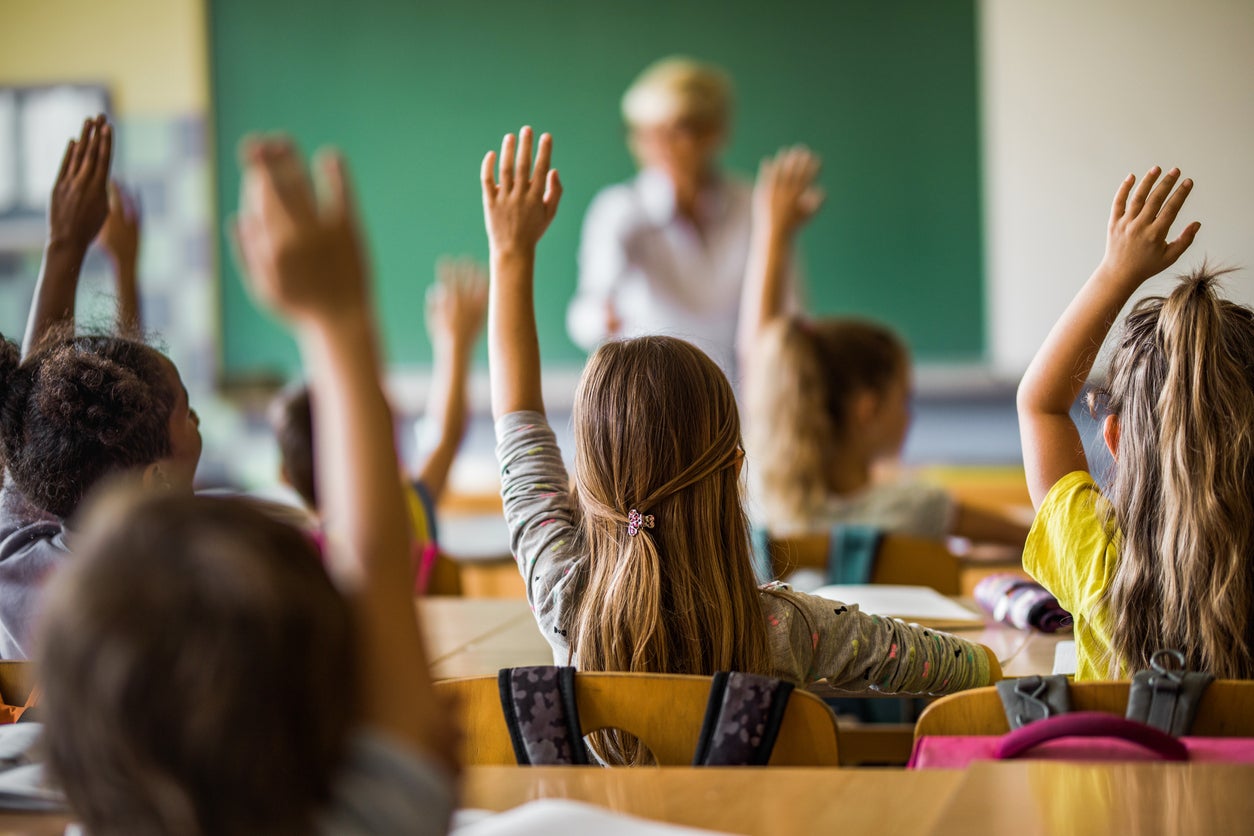Boris Johnson has reneged on his promise to ensure all girls get an education
While increasing spending by £12 million in the Global Partnership for Education, the prime minister has authorised a staggering cut of nearly £300 million to girls’ education this year


Every foreign secretary gets to pick a priority subject – a defining area on which their legacy will be assessed. For William Hague, it was ending sexual violence in conflict. For Jeremy Hunt, global media freedom. For Boris Johnson, it was girls’ education.
And perhaps remarkable for this prime minister, it’s a commitment that’s lasted beyond merely his tenure as foreign secretary. In his first speech on the steps of Downing Street, just over two years ago, the prime minister promised that no matter where in the world a girl is born, they should receive 12 years of quality education.
It is one of the few areas where the prime minister and I see eye to eye. As a former teacher, I have seen the transformative power of education first-hand. And as a liberal, I am a staunch believer that it is a quality education that maximises the ability of any individual to make the most of their lives, as they see fit.
So girls’ education is a real and concerning priority for me in my work in Parliament, and as the Liberal Democrat spokesperson for foreign affairs.
Prior to 2020, around 130 million girls around the world had no access to education. The gendered impact of the coronavirus pandemic will only have exacerbated that inequality. For 500 million students last year, remote learning was not an option, but their schools remained closed. The risk is that a year out of school turns into a lifetime.
That is why now more than ever, the UK government needs to be investing in girls’ education. This week, the UK hosts the Global Partnership for Education, where funds will be raised to help children get an education in up to 90 countries around the world. What a fantastic endeavour.
The prime minister has made positive noises about the summit. At the G7, he pledged £430 million to the fund over five years – which works out at around £12 million a year, or a 15 per cent increase on what the UK government has committed in previous replenishments of the Partnership. So far, so good.
The issue is this: at the same time as increasing our spend by £12 million on this specific scheme, the prime minister has authorised a staggering cut of nearly £300 million to girls’ education spending this year, as part of the wider £4bn cut to the aid budget. Annual girls’ education spending has been £672 million, meaning there has been a 40 per cent cut to funds into girls’ education. The impact of this will be felt by the most disadvantaged girls around the world at a time when, following the pandemic, funds have never been more urgently needed.
What makes matters worse is that the prime minister point-blank refuses to accept that this really does count as a cut. When questioned on it in the House of Commons, his response was that the UK is increasing spending by “at least 15 per cent” - citing the Global Partnership for Education, the funds for which are sadly but a drop in the ocean compared to the overall spend. It is the height of hypocrisy. Girls’ education was once a priority for this prime minister. Now he uses it as a political soundbite while he goes back on a promise he made to the country and to the 130 million girls who currently have no access to education.
The damage this will do to Britain’s standing on the world stage is also immense. How can the prime minister have any moral authority when he stands up at the summit, and urges other countries to give generously? Boris Johnson is taking global leaders for fools if he thinks they won’t see through his ‘do as I say, not as I do’ approach. And sadly, the people who suffer as a result will be girls around the world who will be denied their right to a quality education, as a direct result of the decisions made by Boris Johnson and Tory MPs.
I am proud to represent a party with a long history of advocating for the UK to meet its obligations to the world’s poorest. Back in 2015, we enshrined the 0.7 per cent of gross national income (GNI) aid target in law. And we will continue to make the case for its reinstatement as soon as possible.
Liberal Democrats are clear: the only solution to this problem is to reinstate the international development budget. Return to spending 0.7 per cent of GNI on overseas aid. And restore the girls’ education funding. This is the only way for the prime minister to keep the promise that he made on the steps of Downing Street, two years ago.
Layla Moran is the Liberal Democrat MP for Oxford West and Abingdon
To find out what others are saying and join the conversation scroll down for the comments section orclick here for our most commented on articles
Join our commenting forum
Join thought-provoking conversations, follow other Independent readers and see their replies
Comments
Bookmark popover
Removed from bookmarks